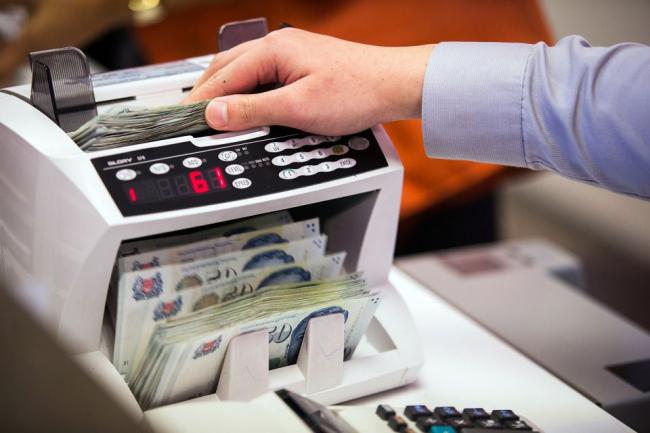(Bloomberg) -- Grab Holdings Inc. and gaming company Razer Inc. will need to demonstrate how their millions of users can help them generate profits if the two technology firms are to win one of Singapore’s coveted virtual banking licenses.
That’s because the Monetary Authority of Singapore is putting more emphasis on profitability and strong capital requirements than some other regulators inviting fintech firms into banking. Both Grab and Razer have expressed interest in submitting separate bids for one of the five digital banking licenses on offer, part of a government strategy announced earlier this year to strengthen competition in financial services.
“The Singapore requirements on digital banks will mean that profitability will have to be a key consideration” for potential applicants, said Zennon Kapron, managing director of Singapore-based consulting firm Kapronasia. In order to succeed “they will need to achieve scale very quickly,” he added.
That’s a particular challenge for Grab and Razer, two of the highest profile technology firms interested in the licenses. Razer and Grab’s Singapore ride-hailing unit have consistently reported losses in recent years.
In its guidelines, the MAS said financial projections that show a consistent or increasing trend in net losses won’t meet its requirement of demonstrating “a path to profitability.” It said it may consider favorably any applicant whose financial projections show an earlier break-even year.
The U.K. requires new banks to present a plan setting out their business viability and how they will make money. But digital banks in the U.K. have been more focused on acquiring customers than generating profits, Kapron said. London-based Monzo Bank, for example, reported a net loss of 47.1 million pounds ($62.6 million) for the 12 months to end February, four years after it was founded, compared with losses of 30.5 million pounds previously.
Singapore will be looking at the profitability of the core businesses as well as of the new banking operations, said Varun Mittal, an associate partner with the consultancy firm EY in Singapore.
Though Grab doesn’t release financial statements for its Cayman Islands-based holding company, accumulated losses of its Singapore ride-hailing unit GrabTaxi Pte reached S$228.9 million ($169 million) in 2018, according to the latest filings to Singapore’s Accounting and Corporate Regulatory Authority. Hong Kong-listed Razer reported accumulated losses of $225.3 million as of June 30.
The MAS is also stricter than some other regulators in its capital requirements, which could pose another challenge for the business models of tech firms trying to get into digital banking. The MAS plans to award two full bank licenses and three wholesale licenses limited to serving corporate clients only -- the first category requires capital of S$1.5 billion, the second S$100 million.
Hong Kong has set HK$300 million ($38.5 million) as the minimum for virtual banks. In the U.K., it can be as low as 1 million pounds.
Profitability Path
“The profitability path can be difficult, especially when that comes on top of the MAS’s very stringent regulatory capital requirements,” said Andrea Choong, a banking analyst at CIMB Securities Pte in Singapore. The new digital banks will also face margin pressures from the need to attract customers by offering more attractive deposit and lending rates than the incumbent banks, she added.
Though it’s unclear which type of licenses Grab and Razer are seeking, any applications could be helped by cementing partnerships with other larger firms with a track record of profits, Mittal said.
Grab has been discussing the formation of a consortium with Singapore Telecommunications Ltd. and insurance firm Great Eastern Holdings Ltd., Bloomberg reported last month. Another consortium under discussion involves local tycoon Ron Sim’s V3 Group Ltd., stored-value card maker EZ-Link Pte and property giant Far East Organization Pte, according to a separate Bloomberg report.
Grab’s other advantage is the share of payments transactions it has built up under its GrabPay brand from ride-sharing users and local merchants, according to Valerie Law, an analyst who publishes on the Smartkarma platform. GrabPay and other financial operations are likely to be folded into the digital bank if the company gets a license, she said.
“Our super app platform has put us on a path to sustainability,” Grab said in response to questions from Bloomberg, referring to the company’s strategy of providing a plethora of different services under one app. Grab can use its so-called super app to offer different services to each customer, the company added.
Grab doesn’t disclose the number of its users but said its app has been downloaded onto more than 166 million mobile devices. Razer Pay’s e-wallet had 1 million registered users in Malaysia as of June 30; it started testing in Singapore earlier this year, according to the company’s interim report.
A representative for Razer said the firm is still exploring a virtual bank license application, but declined to comment further.
Singapore Connection
Any partnerships with strong local firms like Singtel might also help Grab or Razer meet MAS criteria for full digital bank licenses. The MAS has said it will only consider applicants “who are anchored in Singapore, controlled by Singaporeans and headquartered in Singapore,” for the full permits.
Grab, which started out as a taxi booking app in Kuala Lumpur in 2012, has since moved its base to Singapore and taken steps to polish its local credentials. In March, it announced a new headquarters building in the city, and Chief Executive Officer Anthony Tan revealed plans to double local staff to 3,000. Born in Malaysia, co-founder Tan has taken up Singapore citizenship, according to an ACRA filing.
Razer, which has headquarters in San Francisco and Singapore, has been trumpeting its local identity ahead of the deadline for license applications. It has also announced a seven-story office in Singapore.
The company plans to double Singapore headcount to over 1,000 staff in coming years, CEO Tan Min-Liang said in a September Facebook (NASDAQ:FB) post. “While I founded Razer in the U.S., I’m still a Singaporean citizen,” he said.
(Update with further MAS requirements in last four paragraphs)
